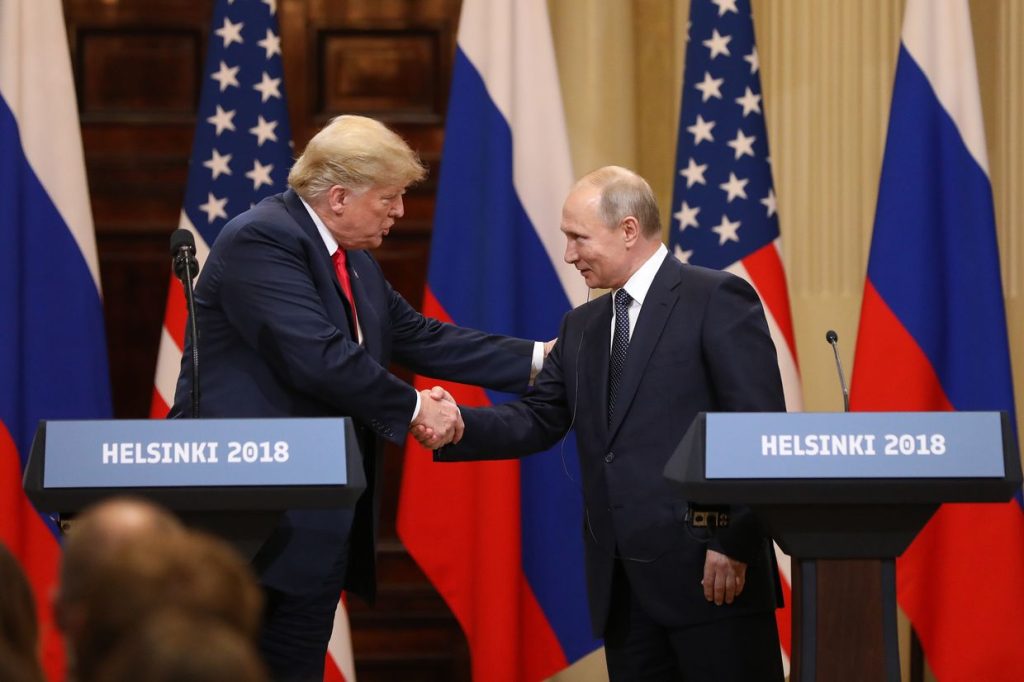A plan being considered by Donald Trump to freeze Russia’s invasion if he becomes president has been deemed unrealistic by a Ukrainian lawmaker. Oleksandr Merezhko, chair of the parliament’s foreign affairs policy, believes that Trump would have to face the reality of the situation and that any plan involving Russian President Vladimir Putin would fail due to his unreliability. Trump has claimed he could end the war within 24 hours without providing details on how he would achieve this. Reports indicate that the plan may involve pressuring Ukraine to cede territory or give up on its NATO aspirations.
Republican vice presidential candidate J.D. Vance has suggested establishing autonomous regions on both sides of the demilitarized zone and leaving Ukraine outside of NATO to freeze the war. This new plan would reevaluate the failed Minsk agreements of 2014 and 2015, which never came to fruition. The agreements initially proposed creating autonomous zones in Russian-occupied parts of Ukraine, with European troops being responsible for maintaining order. Merezhko believes that strengthening Ukraine is key to forcing Putin to negotiate, advocating for President Zelensky’s “Victory Plan” as the most realistic solution.
Facing an expected mass Russian missile campaign targeting Ukraine’s infrastructure, the country is looking for ways to disrupt these attacks without violating restrictions on the use of Western-supplied weapons. Ukraine has expanded its long-range drone strikes target list to potentially include alcohol as a means of disruption. With winter approaching, the country is navigating a delicate situation in terms of defense and offense strategies. It is crucial for Ukraine to find a balance between defending itself against Russian attacks and adhering to international regulations.
The plan proposed by Trump and his inner circle to freeze Russia’s full-scale invasion lacks feasibility, according to Merezhko. The reliance on negotiations with Putin, who is not seen as trustworthy, and the potential concessions asked of Ukraine make the plan unrealistic. While the idea of establishing autonomous regions and removing Ukraine from NATO may be part of the plan, the practical implications remain unclear. Merezhko emphasizes the importance of Ukraine’s strength in forcing Putin to engage in negotiations, highlighting the “Victory Plan” as a more viable solution.
As Ukraine grapples with the challenge of disrupting Russian missile attacks while navigating restrictions on weapon use, the country is evaluating its options for defense. The expansion of the target list for long-range drone strikes to include alcohol demonstrates the creative methods being considered to counteract Russian threats. With winter approaching, the need to defend against expected Russian aggression is paramount, and Ukraine must strategize effectively to protect its infrastructure. Balancing defense and offense capabilities is critical for Ukraine to deter potential attacks while maintaining compliance with international regulations.
In the face of escalating tensions with Russia, Trump’s proposed plan to freeze the conflict has sparked debate and skepticism among Ukrainian officials. The reliance on negotiations with Putin and the potential concessions demanded of Ukraine have raised doubts about the plan’s feasibility. As the country prepares for potential Russian missile attacks and looks for ways to disrupt them in a strategic manner, the challenge of defending against aggression while abiding by international rules remains a top priority. Ukraine’s ability to navigate these complex dynamics will be crucial in ensuring its security and stability in the face of external threats.














